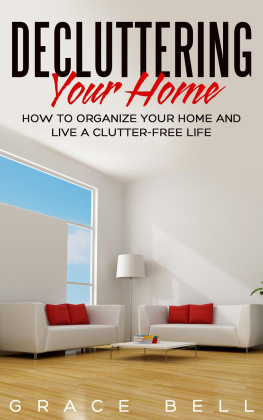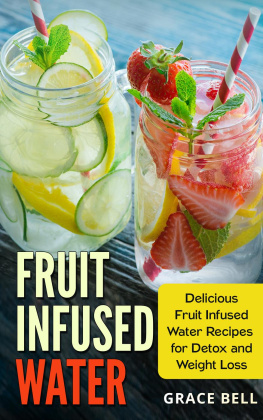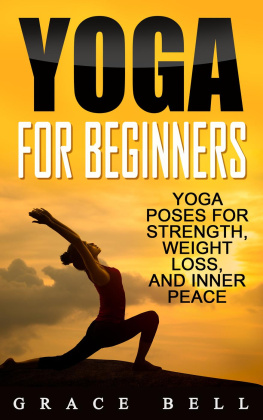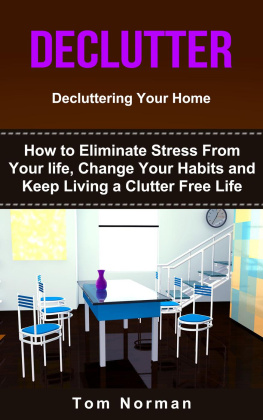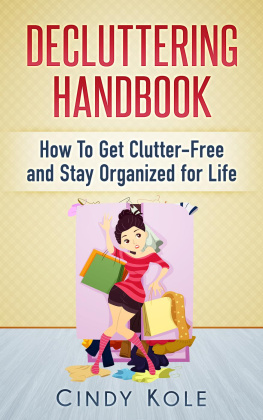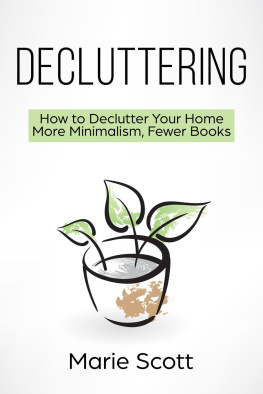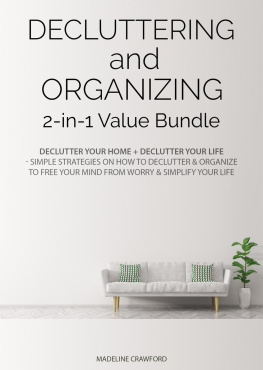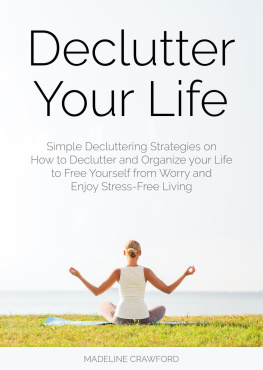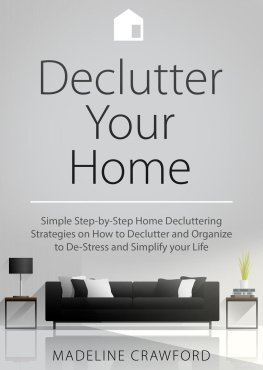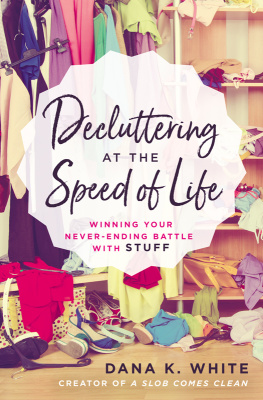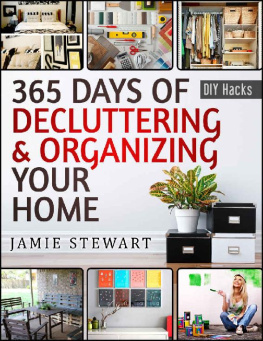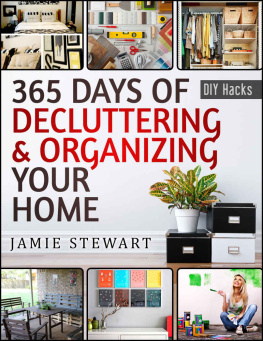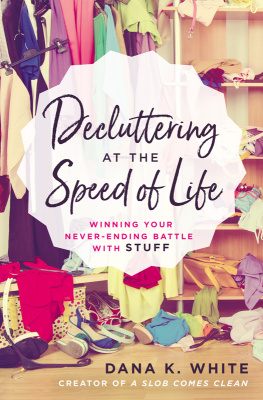Decluttering Your Home
How to Organize Your Home and Live a Clutter-Free Life
Grace Bell
Text Copyright 2018 by Grace Bell - All rights reserved.
This document is geared towards providing exact and reliable information in regards to the topic and issue covered. The publication is sold with the idea that the publisher is not required to render accounting, officially permitted, or otherwise, qualified services. If advice is necessary, legal or professional, a practiced individual in the profession should be ordered.
From a Declaration of Principles which was accepted and approved equally by a Committee of the American Bar Association and a Committee of Publishers and Associations.
In no way is it legal to reproduce, duplicate, or transmit any part of this document in either electronic means or in printed format. Recording of this publication is strictly prohibited and any storage of this document is not allowed unless with written permission from the publisher. All rights reserved.
The information provided herein is stated to be truthful and consistent, in that any liability, in terms of inattention or otherwise, by any usage or abuse of any policies, processes, or directions contained within is the solitary and utter responsibility of the recipient reader. Under no circumstances will any legal responsibility or blame be held against the publisher for any reparation, damages, or monetary loss due to the information herein, either directly or indirectly.
Respective authors own all copyrights not held by the publisher.
The information herein is offered for informational purposes solely, and is universal as so. The presentation of the information is without contract or any type of guarantee assurance.
The trademarks that are used are without any consent, and the publication of the trademark is without permission or backing by the trademark owner. All trademarks and brands within this book are for clarifying purposes only and are owned by the owners themselves, not affiliated with this document.
Table of Contents
W e humans have the instincts to accumulate things. However, accumulating too much stuff or clutter can cause stress and health issues, and make us less productive. That pile of laundry in the garage or basement that needs to be brought up and folded is actually causing you anxiety. The pile of dishes in the sink and the Christmas gifts you didn't find a home for are taking up space in your everyday thinking capabilities. Excess items and physical clutter in your surroundings are competing for your attention, which can cause an inability to focus and an increased stress level.
In this book, I'm going to show you the types of clutter we experience routinely and the benefits of a decluttering mindset. I will provide you with an effective step-by-step plan to form a decluttering habit. More importantly, this book will show you simple strategies to prepare for and start decluttering your home. Specifically, you will discover useful tips on how to organize your kitchen, living room, and bedroom.
This book will help you let go of that excess stuff in order to make room for relaxation and happiness.

Chapter 1: Decluttering Mindset
Clear your stuff. Clear your mind.
Eric M. Riddle
L ike most people, you might be someone who enjoys the thrill of purchasing a new item. Perhaps you enjoy seeing beautiful things in your home, or maybe you like keeping up with the latest fashions. We often view our material possessions as symbols of our success, status, and level of income. However, you've probably also noticed how short-lived these feelings of pleasure are. You long for the new gadget or trendy outfit, but once you have it, your attention moves on to the next thing you want. The desire for "stuff is a beast that constantly needs to be fed.
Materialism vs. Experiences
T he problem? Eventually your home ends up filled with items that have little value to you. They no longer serve a purpose and often end up in the bottom of a junk drawer.
If you no longer "want" certain items, why are you holding on to them? Having more things doesn't mean youll survive tough financial times. Actually, spending money on pointless junk often means an increase in debt or not having enough money for the truly important things in life.
According to Cornell psychology professor Thomas Gilovich, who has spent years researching consumption and happiness, experiential purchases bring people far more happiness and life satisfaction than material purchases. It's how we spend our time that makes us happy, not what we own.
As you begin developing your decluttering habit, I suggest that you consider reorienting your life away from materialism and more toward experiences. Consider streamlining your possessions to the most essential, useful, and meaningful.
Only you can decide what those items are, and it may take several decluttering sessions to get comfortable with reducing the number of possessions you own. However, you can decide right now to minimize your spending on material things going forward and to make any future purchases mindfully.
Okay, before we move on to the "how-to" portion of this book, we want to go into detail about how decluttering habits can actually have a positive impact on your bottom line as well as your quality of life.
Benefits of Decluttering Habits

